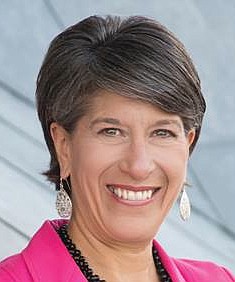If you have ever spent the holiday season caring for a sick loved one or friend, you know how stressful it can be when caregiving tasks already fill your day. Heap the expectations of a joy-filled season on top of that, and there is real potential for feelings of guilt, anger, resentment and complete fatigue to take over.
"My mom lived with us as she battled cancer before passing away five years later," says Maggie Russell. "I remember the first holiday season. We wanted to help her feel at home, but I had to draw the line when she wanted our house to be decorated just like hers. We had to decide what we were willing to negotiate on and what was out of the question."
Russell quickly found that she had to somehow care for her mom without letting it consume her whole life.
"Almost before I realized it, caring for my mom was basically all I was doing," Russell says. "I realized that wasn't good for her, me or my marriage. That's when my husband and I put some boundaries in place and I figured out how to let people help me."
Russell's mom enjoyed drawing, so she asked a friend if she could pay her to do art classes with her mom once a week. The friend refused payment, but said she would love to come over and work with her mother. She paid another friend, Lisa, to take her mom to routine doctor appointments.
In order to keep their marriage healthy, the Russells decided to do two specific things. In an effort to create some breathing room, the Russells set up a private space. They also bought a camper so they could take short trips alone once a month.
"Initially, I felt a bit guilty for not including my mom when we went out, but I quickly realized we really needed date nights and these trips in order to keep our sanity," Russell says. "We included her on some things but didn't feel guilty about getting away to recharge and reconnect."
Many caregivers are constantly exhausted, and sometimes just putting one foot in front of the other seems daunting. It can be tempting to hide away until after the holidays to avoid dealing with the added stress. If you can relate, these suggestions may help you navigate the season with a different mindset.
* Give yourself permission to put self-care at the top of the list. You probably know that you can't give what you don't have to others, but that is just plain easier said than done. Some family and friends may have more flexibility to give you much-needed breaks to exercise, sleep, treat yourself to some time with friends or to just do nothing.
Driving to doctor visits, picking up prescriptions, changing beds, grocery shopping, fixing meals and keeping the house clean can keep you going 24/7. Friends are usually looking for ways to be helpful, especially during the holidays. Instead of trying to do it all yourself, let them help. It will bless you both.
"My mom loved it when Lisa would take her to doctor's appointments," Russell said. "She was a new face and someone besides me to have conversation with. My mom also loved that Lisa had a young daughter that filled the void of not having grandchildren close by."
* Think about what makes your heart happy when it comes to celebrating the holidays. Do those things, and eliminate the rest even though you might want to do more. Instead of doing all the decorating, ask a friend if he or she would do it for you. Send an email instead of cards, or have someone help you address envelopes. If hosting the annual holiday gathering feels like too much to handle this year, ask someone else to host. If you still want to host but want less responsibility, let others bring the food.
* Take control of your mind and guard against negative self-talk. If you typically do everything yourself, this can be a particularly complicated time of year. On one hand, you know you need help, but on the other hand, you hate to seem needy. Healthy people ask for what they need and don't feel guilty about it.
Caring for a loved one goes on for a season, and that time period may be months or years. Whatever the time frame, most people understand how hard it is, and there are often many people in your life who are willing to help you shoulder some of the load so that in the end you don't end up sacrificing yourself in the name of caring for the one you love.
Julie Baumgardner is president and CEO of family advocacy nonprofit First Things First. Email her at julieb@firstthings.org.
